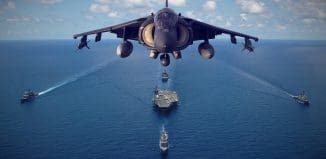Near Disaster: Operator Arrested After UAV Near Crashes Helicopter
This post is also available in:  עברית (Hebrew)
עברית (Hebrew)
Unfortunately incidents of irresponsible operators of Unmanned Aerial Vehicles (UAV) endangering lives are still occurring often and make it even clearer how crucial it is to find an answer to this matter as soon as possible.
Several days ago, a too-close encounter between a private drone and an L.A. Police helicopter was witnessed in the Los Angeles skies, which forced the helicopter to maneuver out of the way to avoid collision. The officers in the helicopters were searching for a suspect at around midnight when the drone suddenly appeared.
Shortly after this dangerous incident, the police tracked the operator, an American man in his forties whose identity has not yet been revealed, in the Rite Aid parking lot and took him into custody after confiscating his drone. He was arrested for interfering with police work, but was eventually released with no charges.
The helicopters weigh around 2270 kilograms and carry up to 143 gallons of jet fuel, meaning that a collision could have ended up killing the people inside the helicopter as well as people on the ground below.
The L.A. police department stated that this is the most serious incident so far and that this is the first time that a drone enters a police helicopter’s aerial space in such a close proximity. The defendant told the police in his defense that he only recently bought the helicopter and doesn’t see what his mistake was (in controlling it). He also claims that he never even saw the helicopter.
Drones don’t interfere only with police work, but with fire-fighters’ work and with our privacy among other things. Legislators are still hard at work to define restrictions, among them to restrict drones from flying near fires and less than a 100 meters from private property. The only ones who aren’t as pleased from this legislation are, of course, drone manufacturers, as it hurts their business, but as they say in the U.S.: Safety first.






























